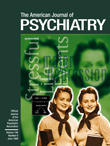Contemporary Models of Psychotherapy: A Comparative Analysis, 2nd ed.
The publisher describes this as a “thoroughly revised and updated second edition of Ford and Urban’s 1963 classic text.” That book, like this one, deals with psychotherapy in a highly abstract fashion, adopting a systems theory framework that locates human beings within a multilevel, materialistic cosmology fully consistent with contemporary natural science.
Unlike most psychotherapy texts, in which philosophical issues are rarely addressed, Ford and Urban consider cosmological, ontological, and epistemological issues as the foundations and contexts for their psychotherapy theorizing. The first third of the book is a highly abstract, philosophical primer addressing the various “isms” in order to create a framework in which to place human beings and their physical and social environments.
The authors define psychotherapy as “a professional form of intervention focused primarily on alleviating psychological distress, psychological and behavioral dysfunction, and problems of social living. It uses primarily psychological and behavioral means, mediated primarily by verbal methods and interpersonal actions, conducted with individuals or small groups under relatively intimate, private conditions that facilitate clients’ self-direction and self-regulation.” They contrast psychotherapeutic practice with medical practice, “which focuses on alleviating or preventing biological dysfunctions.” The “family of psychotherapies” considered here includes behavior therapy; cognitive, cognitive behavior, and skills training therapies; behavioral medicine/health therapies; humanistic therapies; traditional psychoanalysis and its modern variants; interpersonal and sociocultural therapies; and eclectic and integrated therapies.
The authors couch their approach in the value-free (and colorless) language of natural science, applying control systems theory in their understanding of human action. They represent human beings as “self-organizing, self-constructing control systems.” People are viewed as “living systems transacting with their contexts.” Physical life is understood as “material/energy-based processes organizing and coordinating the functioning of all biological components.” The psychological person is represented as the sum of “information/meaning-based processes [that] construct, maintain, and carry out psychological functions so as to selectively direct, organize, and evaluate the person’s transactions with their environmental contexts.” Human beings are conceptualized as “an integrated, multilevel organization of physical structures and biological, psychological, and behavioral functions embedded in and in continual transaction with a dynamically organized, multilevel environment.” The assessment of people conceived as “complex, dynamic systems” includes consideration of biological states, emotional/affective and arousal states, cognitive and perceptual states, behavioral states, and interpersonal/environmental conditions. This is the framework for considering and comparing psychotherapeutic approaches.
Ford and Urban’s theory of human conduct is understood through the broad lens of learning theory in meaning-making and “behavior episode schemas.” Psychopathology is described as “significant deviations from norms of functioning” and different kinds of functional disorganization within a person, between persons and their context, and in the temporal organization of the flow of their functioning. Human beings are conceived of as living, self-regulating systems that create and maintain organization. “All stability and change in humans must result from processes that deal with discrepancies in, or disruptions of, existing states so as to create, maintain, and restore coherent organization within a person, in the person-context relationship, and between intraperson and person-context patterns.”
This short review cannot do justice to the detailed complexity that characterizes Ford and Urban’s efforts systematically to describe humans in the context of their functioning. I hope that the reader has gotten a taste of the sort of language and conceptualization they use, however.
In the next 500 pages of the book, Ford and Urban compare members of the family of psychotherapies in terms of the systems framework outlined at the beginning of the book. Their proposal of a framework for comparison includes 1) definition and nature of dysfunction, 2) desirable end states, 3) strategies and methods for effecting change, and 4) evaluation of results. Each theoretical framework is examined in exhaustive (and abstruse) detail. Traditional psychoanalysis; object relations, self psychology, and interpersonal approaches; humanistic psychotherapies, including existential, experiential, Gestalt, and person-centered approaches; behavior therapy; cognitive and cognitive behavior therapies; behavioral medicine; and eclectic and integrative approaches are considered in turn.
This account of psychotherapy, couched in its natural science/systems language, deserves credit for its ambitious scope and its attempt to create a unified framework for conceiving human functioning, dysfunctioning, and change. The only other text I am aware of that comes close is Joseph Rychlak’s Introduction to Personality and Psychotherapy(1), which explicates the philosophical foundations and presuppositions for the major theories of personality and schools of psychotherapy.
Contemporary Models of Psychotherapy is truly encyclopedic in scope. Its systematic approach and abstruse language of interacting levels, units, systems, and dynamisms can be tedious reading, but the virtue of the book is its breadth of scope and aspiration to seek unity in conceptualization. As an overarching framework, it transcends the particularity and the uniqueness of each school of psychotherapy. Founders of psychotherapeutic schools, such as Freud, Jung, and Adler, and the unique social, cultural, and moral dimensions they each bring to their theories and craft tend to disappear into the grand system. Ford and Urban’s text, in contrast, permits a view of psychotherapy from a transcendent, integrative, philosophy of science point of view. The language reminds me of Freud’s in his “Project for a Scientific Psychology” (2). People as conflict-ridden, striving, and choosing moral agents with unique histories and individuality are not emphasized in this framework. Rather, the systems-ecological approach shifts the focus to organisms in their physical, social, and cosmological ecologies. Contemporary Models of Psychotherapy, with its philosophy of science prose and conceptualization, truly speaks in the idiom of the technological age.
1. Rychlak JF: Introduction to Personality and Psychotherapy, 2nd ed, vols 1 and 2. Boston, Houghton Mifflin, 1981Google Scholar
2. Freud S: Project for a scientific psychology (1950 [1887–1902]), in Complete Psychological Works, standard ed, vol 1. London, Hogarth Press, 1966, pp 295–397Google Scholar



